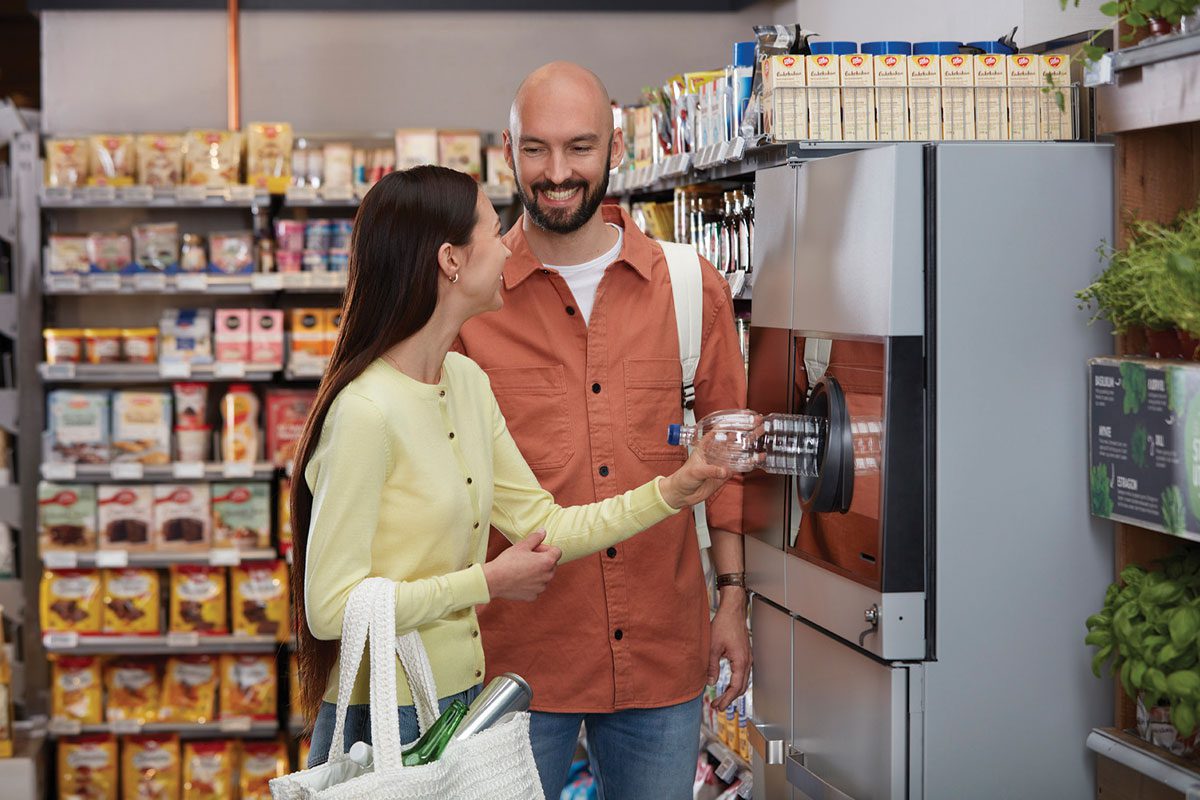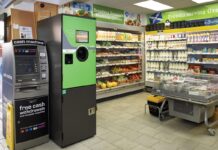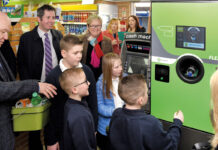
With less than one year to go, Mark Brill, UK & Ireland VP sales and marketing for TOMRA, looks at what retailers need know about the deposit return scheme.
What is the deposit return scheme?
A deposit return scheme adds a refundable deposit to single-use drinks containers to encourage high quality recycling and reduce litter.
Scotland is introducing it’s scheme in August 2023 and is set to include soft drinks and alcoholic beverages, including PET bottles, cans, and glass bottles ranging from 50ml to 3 litres.
How will convenience retailers be affected?
Scotland’s scheme will be a ‘return to retail’ scheme, which means that retailers will collect the bottles and cans back from consumers. As well as doing their bit for the environment, retailers will receive a handling fee for every eligible container that they take back.
How can retailers collect the empty bottles and cans in their stores?
Retailers can either accept bottles and cans back manually ‘over the counter’ or by using a reverse vending machine to automate the process.
What do we know about the scheme?
- The scheme will go live in Scotland on 16 August 2023.
- The scheme will be run by scheme an administrator called Circularity Scotland, a not-for-profit organization which will be responsible for the day-to-day running of the scheme.
- In May, Circularity Scotland announced details of the handling fees. Retailers using a reverse vending machine will receive a handling fee per eligible container of 3.55p for the first 8,000 items each week, and then 1.35p for each additional item.
- Retailers operating manual returns (over the counter) will receive 2.69p per eligible container.
- Retailers must accept any eligible container back, not only the products that they sell.
- The deposit amount will need to be displayed separately from the price of the product on any point of sale.
- The scheme administrator will collect the containers from stores on a regular basis, with one-off collections if required.
- Retailers will be reimbursed around seven days after the bottles and cans are collected by the scheme.
- Some exemptions may be given, these can be checked on the Zero Waste Scotland website.
How can retailers prepare?
The best way to prepare is to get familiar with the scheme and how it will work. Visit the Circularity Scotland website for full information and frequently asked questions.
We would also recommend sharing knowledge among other retailers, especially those who have run in-store trials.
As part of these preparations, a key decision for retailers is whether to use a reverse vending machine or accept containers back manually.
Broadly speaking, retailers who sell over 2000 beverage containers a week should consider investing in a reverse vending machine from the beginning of the scheme.
Retailers who want to give customers a great recycling experience in their store and avoid manual handling for store staff should also explore automating, since it is typically quicker and more efficient to return bottles at a reverse vending machine.
What can TOMRA offer convenience retailers?
Space is a key consideration for convenience retailers, so TOMRA has developed a new compact reverse vending machine especially for retailers in Scotland.
This new machine is called the TOMRA M1 and is less than 0.6 square metres, but still takes all three materials in the scheme. It’s great for busy stores where space is limited,
enabling retailers to automate without giving up valuable selling space.
To get in touch with TOMRA, email tcs.uk@tomra.com













